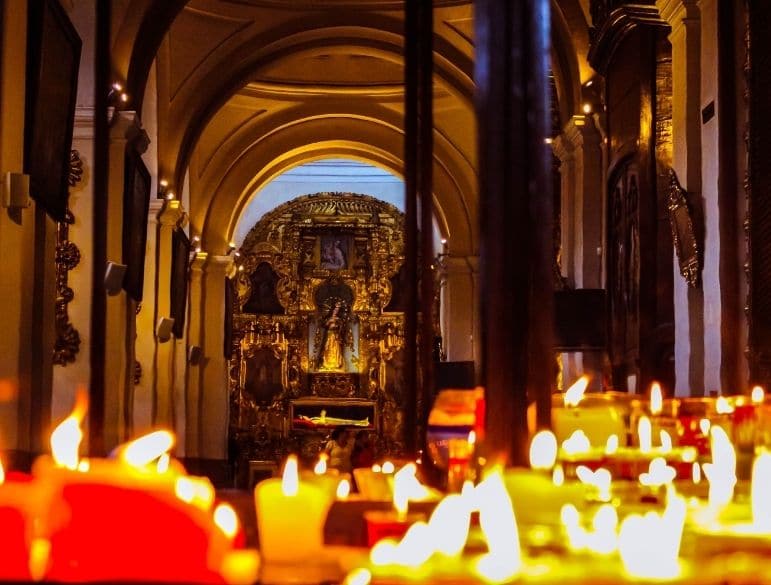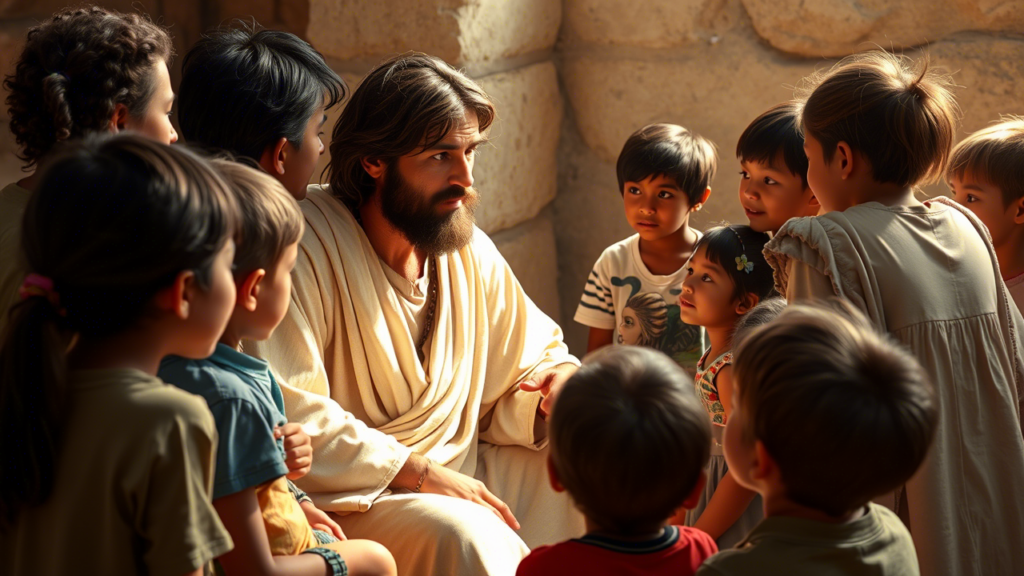Why is the Church “apostolic”?
Questions and Answers

Why is the Church “apostolic”? Father Jairo Yate, priest and investigating judge in the diocese of Ibagué, Colombia, answers this question.
Why is the Church “apostolic”?
The Catechism of the Catholic Church states that the Church is apostolic because “she preserves and transmits, with the help of the Holy Spirit who dwells in her, the teaching, the good deposit, the sound words heard from the apostles” (n. 857).
The Church preserves throughout the centuries this precious treasure, which is the Sacred Scripture, the doctrine, the sacraments, the ministry of the pastors so that we can be faithful to Christ and participate in his very life.
Is it true that she is apostolic?
She is apostolic because she is sent to bring the Gospel to the whole world. The same mission that Jesus entrusted to the apostles continues along the path of history: “Go therefore and make disciples of all nations, baptizing them in the name of the Father and of the Son and of the Holy Spirit, teaching them to observe all that I have commanded you. And behold, I am with you always, to the end of the age” (Matthew 28:19-20).
Apostolic means emphasizing the constitutive relationship that the Church has with the apostles, with that small group of twelve men that Jesus called one day (cf. Mark 3:13-19).
Who gives authority to the Catholic Church?
It is founded on the prayer and preaching of the apostles, on the authority that was given to them by Christ himself. St. Paul writes to the Christians of Ephesus: “You are fellow citizens with the saints and members of God, built on the foundation of the apostles and prophets, with Christ Jesus himself as your cornerstone” (2:19-20).
Jesus is the very foundation of the Church, the foundation. The apostles lived with Jesus, listened to his words, shared his life, and, above all, were witnesses of his death and resurrection.
What is an apostle?
He is a propagator or preacher of biblical doctrine, of the Christian faith and of the Power and Love of God. He is an evangelizer who has the mission of preaching about Jesus Christ and His Redemptive work, His life, His death and His resurrection.
“The apostles, by their preaching, their example, their institutions, handed on by word of mouth what they had learned from the works and words of Christ and what the Holy Spirit had taught them” (cf. Dei Verbum 7).
And the names of the apostles?
“Simon, to whom he gave the name Peter, James the son of Zebedee, and John the brother of James, to whom he gave the name Boanerges, that is, ‘sons of thunder’; Andrew and Philip, and Bartholomew and Matthew, and Thomas and James the son of Alphaeus, and Thaddeus and Simon the Canaanite; and Judas Iscariot, the one who betrayed him” (Mark 3:16-19).
Can men and women be apostles?
According to Pope Francis: “Every Christian is a missionary to the extent that he has encountered the love of God in Christ Jesus; we no longer say that we are ‘disciples’ and ‘missionaries’, but that we are always ‘missionary disciples’. If we are not convinced, let us look at the first disciples, who immediately after seeing Jesus’ gaze, went out to proclaim it joyfully: ‘We have found the Messiah!’ (Jn 1:41). The Samaritan woman, as soon as she left her conversation with Jesus, became a missionary, and many Samaritans believed in Jesus ‘because of the woman’s word’ (Jn 4:39). St. Paul, too, after his encounter with Jesus Christ, ‘immediately began to preach that Jesus was the Son of God’ (Acts 9:20). What are we waiting for? (Evangelii Gaudium, 120).
Should an apostle be guided by the Holy Spirit?
The Holy Father Francis, in his apostolic exhortation on the proclamation of the Gospel in the modern world (Year 2013); affirms that all of us who are missionaries, disciples, apostles, must be “Evangelizers with spirit.”
“Apostles are those who open themselves without fear to the action of the Holy Spirit” (Evangelii Gaudium 259). “Praying and working distinguish a good apostle” (Evangelii Gaudium 262). The apostle is in love with love, with loves, and is moved by the personal encounter with Jesus (Evangelii Gaudium 264).
The apostle is convinced that he already exists in people and in nations through the action of the Holy Spirit (Evangelii Gaudium 266). The apostle likes to be close to people (Evangelii Gaudium 268). An excellent apostle is a magnificent communicator. Everything he does, he does with gentleness and respect (cf. 1 Peter 3:16). (Evangelii Gaudium 271).
The good apostle does not let himself be carried away by pessimism (Evangelii Gaudium 275). The apostle trusts in the action of the Holy Spirit (Evangelii Gaudium 280). An apostle always goes hand in hand with the Blessed Virgin Mary (Evangelii Gaudium 284).
What does Pope Francis recommend to a future apostle and prophet?
In his homily at Casa Santa Marta on April 27, 2018, Pope Francis said: “The Church needs us all to be prophets,” that is, “men of hope,” always “direct” and never “weak,” capable of saying to the people “strong words when they need to be said” and of crying together if necessary.
“Prophets have always had problems with persecution for telling the truth, and the truth is uncomfortable, often people don’t like it.” “Prophets always began to tell the truth gently, to convince, like Stephen, but in the end, not being heard, they spoke harshly.”
“Jesus, on the one hand, rebukes with those harsh words – “perverse and adulterous generation” he says, for example – and, on the other hand, weeps over Jerusalem.” Precisely, “this is the test.”
“The true prophet is not a “prophet of misfortunes” as St. John XXIII said, but “a prophet of hope: opening doors, healing roots, healing belonging to the people of God in order to move forward.” Therefore, “he is not a rebuker by trade,” but “he is a man of hope.”
“He rebukes when necessary and opens doors looking at the horizon of hope.” Above all, “the true prophet, if he does his job well, risks his life (for example, St. Stephen).”
Related

Explaining Holy Week to Our Children: A Journey of Faith and Hope
Laetare
11 April, 2025
4 min

Christian Leadership in Business: A Model of Humility, Justice, and Solidarity
Javier Ferrer García
10 April, 2025
3 min

Guiding Our Decisions with God’s Will in Daily Life
Patricia Jiménez Ramírez
10 April, 2025
4 min

What are you going to do with your life?
Luis Herrera Campo
10 April, 2025
2 min
 (EN)
(EN)
 (ES)
(ES)
 (IT)
(IT)

